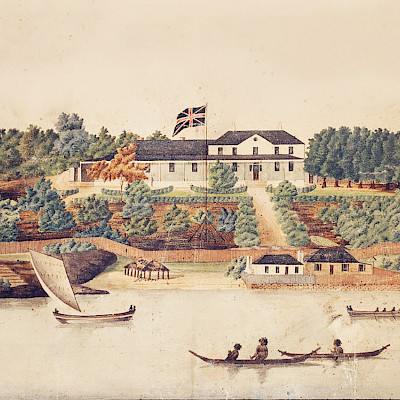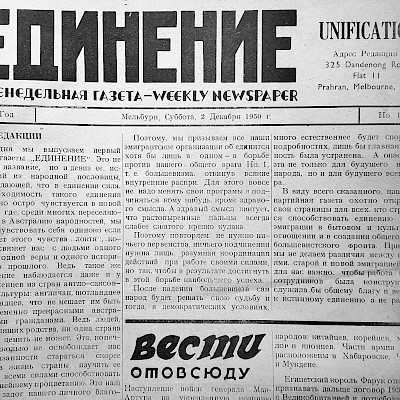On 14 June, the FIFA World Cup begins in Russia. Thirty-two of the world’s best teams will compete in 11 cities across Russia, in its European and Asian parts. Among them are the Russian, Japanese and Australian teams. We present you with an anecdote from Nikita Yamashita, whose life story has intertwined Russian and Japanese roots, about a football match in Harbin he played in many years ago.
Now, as the whole world gets ready for the next World Cup, I remember the long-since passed football competitions of my childhood, which was spent in the Manchurian city of Harbin.
When we weren’t in class at school or doing our homework in those distant years, I, like the majority of Harbin kids, mostly played football. Of course, we didn’t have proper footballs: it was home-made balls sewn together from old linen, holey socks, vests and all sorts of rags that we chased in the pine grove of the Orthodox church’s confines. These games, which took place on a plot of land with a large number of stumps from sawn-down trees, were most probably akin to a run around with a ball, but such a ‘jolly’ run around once nearly came to me getting injured when I ran up and kicked a stump I hadn’t noticed instead of the ball with my right foot. At that time already, at the age of ten, I noticed I had better success in deftly winning possession of the ball with my left foot, especially with volleys.
Time took its course, and soon into my high school years, already in year seven, I got a spot in the representative team for Soviet High School № 3, which competed in annual football tournaments for the Harbin cup featuring representative teams from four schools.
One day, during our preparation for the next tournament, we get told about a Moscow school representative team’s, Krasnaya Zvezdochka’s, arrival from the Soviet Union and participation in the tournament. Realising the Moscow team’s obvious assumed superiority in strength over all our teams put together, the tournament’s organisers decide to arrange a friendly meeting between the Harbin representative team and the Muscovites instead of a tournament. With this, the meeting’s organisers, people interested in the forthcoming duel with the Muscovites and also the players themselves get into a kind of panic. You see, not only do we not have a common uniform for the whole team, but also neither football boots for all the players, and so our mummies had to sew us football shirts in a hurry, so we wouldn’t disgrace ourselves with our beggarly appearances before our rivals and the supporters.
On the sunny day of this historical match for the young Harbin football players, the Harbin representative team came out onto the pitch in bright blue football shirts, the same colour as the Samurai Blue’s uniform at the recent championship. But it was only the goalkeeper, forwards and midfielders who came out in football boots. The rest of the players, myself included too (I had the honour of playing in defence as a left defender or, as they said at that time, ‘left back’), played barefoot.
The game, as was intended, went by under a constant onslaught of our goalkeeper’s goal. The half-starved Harbinites, who lived mainly on kaoliang in these harsh post-war years, were only just managing to fend off Krasnaya Zvezdochka’s aggressive attacks, but they selflessly defended their goal, fearing neither potential injuries nor bruises. Despite the opponent’s furious onslaught, the game promised to end in a draw, but then, imagine, something inconceivable and out of the ordinary for any game of football happened. Two minutes before the end of the match, during our team’s only attack after a chance successful lob from the right flank, our forward sends the ball with a header into the left upper ninety of the Muscovites’ goal. Not one of the many thousands of spectators and neither the teams’ trainers nor we, the players of both teams, could simply believe such an end to the meeting, especially as the trainer for Krasnaya Zvezdochka was promising in an interview before the match a win for his wards with a score of at least 5:0.
In moments when I’m needing to support any team, this unforgettable episode of my distant childhood comes to mind, and I often catch myself at the thought of my unfulfilled dream of entering Waseda University after school, which had a strong football team. Well, and if this dream had come true after all, would I have devoted my life to football? God only knows.
About: Nikita Yamashita. Simultaneous interpreter of Russian and member of the Japanese male quartet famous in the ‘60s and ‘70s, ‘Royal Knights’. Lecturer at the Tokyo Conservatoire from 1996 to 2009.
Nikita (Kenji) Yamashita
Translated by Samuel Brotchie
Translator’s note
This translation is a translation of the original text and was completed by me in 2020 during my bachelor honours degree programme in the field of Russian.
I am not a professional translator and have no formal translation qualifications. Any mistakes in this translation should be considered in this context. Any views expressed in this translation are not a reflection of my views.
If any text in this translation contains text from external sources, this is indicated in this translation, and the details of these sources can be found in a list at the end of this translation.
I feel privileged to have had the opportunity to produce this translation, and I hope that it is of benefit to the literature on Harbin Russians and to the Unification community.
Samuel Brotchie
February 2021


















